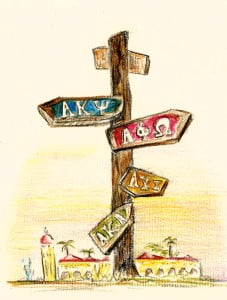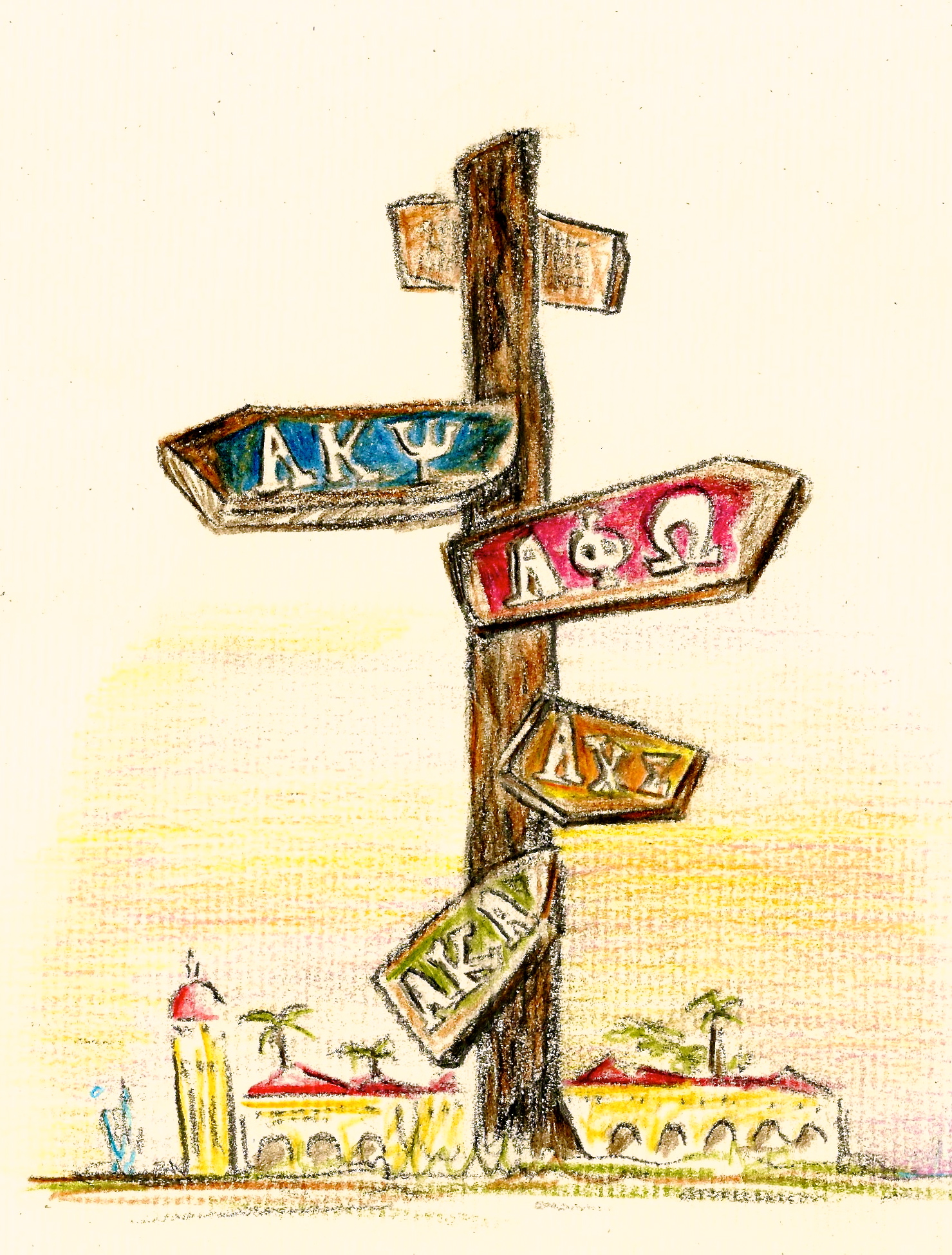
At Stanford, approximately 13 percent of undergraduate students are part of Greek life. This includes fraternities and sororities associated with the Inter-Fraternity Council and Inter-Sorority Council, as well as those associated with the African-American Fraternal and Sororal Association, and the Multicultural Greek Council.
Beyond that, however, some students are associated with special interest fraternities. These range from professional fraternities, such as Alpha Delta Phi and Alpha Kappa Psi, to service fraternities, such as Alpha Phi Omega. They also have different focuses, such as Alpha Chi Sigma’s emphasis on chemistry or Alpha Delta Phi’s focus on literature.
To take a better look at the different special interest fraternities on campus, The Daily sat down with officers from three different fraternities: Alpha Chi Sigma, Alpha Phi Omega and Alpha Delta Phi.
Alpha Chi Sigma
Founded in 1916 on Stanford’s campus, Alpha Chi Sigma is a professional fraternity centered on chemistry. While it was deactivated in 1981 because of dying interest, the fraternity became a colony under the Sigma Chapter at UC-Berkeley. In 2012, it was reactivated on campus and this year saw a rush class of 26 recruits, adding to an existing brotherhood of 30 members.
“While we strive to create a brotherhood and create a more cohesive chemistry community, we also strive to create a community with the Chemistry Department,” said Nai Saephanh ’15, who is Vice Master Alchemist, or vice president, of Alpha Chi Sigma.
Members do not have to be chemistry majors, but one of the few requirements to rush Alpha Chi Sigma is a legitimate interest in chemistry.
The fraternity hosts faculty dinners with members of the chemistry department as part of this mission. It also provides professional development events for resume building and for tips on interviews. One of the brothers, Darren Handiko ’16, is currently working on a consulting group to link the brothers to businesses.
In addition to these events, the brothers frequently work on problem sets with each other, and have also provided support for students coming out of chemistry exams.
“Our aim in forming this frat was to provide a platform for brothers who are always seeing each other in these classes to get to know each other,” Saephanh said.
Alpha Phi Omega
Alpha Phi Omega is a national service fraternity whose Zeta Chapter was founded at Stanford in 1928.
The fraternity partners with organizations such as Save the Bay, which focuses on environmental clean up in the Bay Area. It also hosts events like a cleanup of the Dish hiking trail planned for today or the Hunger and Homelessness Charity Auction, which is co-sponsored with organizations such as Challah for Hunger and Night Outreach.
“The types of people who join APhiO aren’t just public service-minded, but are also looking to build social bonds,” said Alex Mullin ’15, co-president of Alpha Phi Omega. “It’s the intersection of these two things that creates a group that is very welcoming and fun to be around.”
Alpha Phi Omega does not use the bid process, meaning that nearly all students who want to join the “rush” and “pledge” process are allowed to join. This, according to Mullin, is an attempt to diversify the group’s membership. The “pledge” process includes creating a service project, as well as getting to know the brothers of the fraternity.
Alpha Delta Phi
Initially founded as a literary fraternity, Alpha Delta Phi subsequently became co-educational and eventually transitioned into a literary society in 1989.
“It has become an outlet for people passionate about literature and humanities, something that is sometimes of secondary interest on campus,” said Cody Laux ’15, Madam President, or president, of Alpha Delta Phi.
Like Alpha Chi Sigma, Alpha Delta Phi went through a hiatus on campus. It was revived in 2008 and has since seen renewed interest. This year, the society saw a record number of “neophytes,” or new members—approximately 30, more than the amount of active members in the organization.
While Alpha Delta Phi lost its housing in 1989, it has only strengthened the bonds of the brothers, according to Laux.
“Because it’s not housed, we have more of a focus for coming together for literature rather than just being a community of people who live together,” she said.
Alpha Delta Phi hosts several events for both members and non-members, such Novel in a Night, when members sign up for 10 minutes each of reading out loud to complete a book in one night, and Poem In Your Pocket Day on April 24, which is when members keep poems in their pockets to trade with other members. Alpha Delta Phi also hosts the annual Laker Music Festival on May 31 at the Enchanted Broccoli Forest.
“Our members are photographers, engineers, philosophers, writers, humanities people, hard science people—a whole spectrum,” Laux said. “It’s amazing that we can all come together over something as simple as poetry.
Contact Irene Hsu at ihsu5595 ‘at’ stanford ‘dot’ edu.
